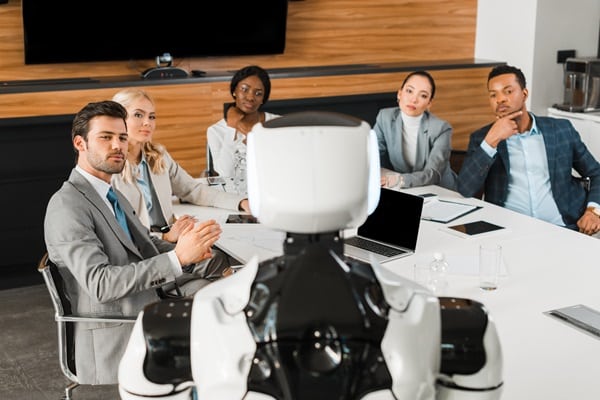Artificial Intelligence (AI) has become integral to modern life, influencing everything from healthcare and transportation to entertainment and personal devices. As AI continues to advance, it brings many benefits that make life easier and more efficient. However, this technological marvel is not without its drawbacks. Understanding the risks associated with the widespread use of AI is crucial, as these dangers can have far-reaching implications on privacy, employment, and even ethical norms.
Contents
The Rise of AI Technology

Since its inception, Artificial Intelligence has advanced greatly, evolving from simple algorithms to complex systems capable of learning and decision-making. These advancements have led to the integration of AI into various aspects of daily life, such as smart homes, autonomous vehicles, and personalized recommendations on streaming services.
However, the rapid adoption of AI technologies raises questions about their impact on society. While AI offers convenience and efficiency, it also brings about challenges that need to be addressed. Understanding the evolution of AI is the first step in comprehending the risks that come with its widespread use.
Data Privacy Concerns

One of the most pressing issues surrounding the use of AI is the collection and utilization of personal data. AI systems often require vast amounts of data to function effectively, which can include sensitive information like medical records, financial transactions, and even personal conversations.
The collection of this data poses a significant risk to individual privacy. Without stringent regulations and safeguards, there’s a potential for misuse of data, either by the companies that collect it or through data breaches. This compromises individuals’ privacy and can lead to identity theft, financial loss, and other forms of exploitation.
Job Market Disruptions

The automation capabilities of AI have led to significant changes in the job market. Tasks that once required human intervention can now be automated, leading to increased efficiency and job displacement. According to various reports, millions of jobs are at risk of being replaced by AI in the coming years.
The loss of jobs due to automation creates a ripple effect in the economy, affecting not just the individuals who lose their jobs but also the communities they belong to. As AI continues to advance, the need for human labor in certain sectors diminishes, leading to increased unemployment rates and social inequality.
Ethical Dilemmas

Artificial Intelligence systems are increasingly being used in decision-making roles, from judicial sentencing to medical diagnoses. This raises ethical questions about the fairness, transparency, and accountability of AI algorithms. For instance, there have been cases where AI systems have shown racial or gender biases, leading to unfair outcomes.
The ethical implications extend beyond biases to questions about the moral responsibilities of AI. When an AI system makes a decision, who is accountable for the consequences? These ethical dilemmas are complex and require multi-disciplinary approaches to address, including input from ethicists, technologists, and policymakers.
Security Risks

As AI systems become more advanced, they also become targets for malicious activities. Hackers can exploit vulnerabilities in AI algorithms to gain unauthorized access to data, manipulate outcomes, or even take control of AI-powered devices. These security risks are not just theoretical; there have been actual instances of AI systems being compromised.
The vulnerabilities in AI systems pose a significant threat to both individual and national security. For example, AI-powered defense systems can be hacked to misfire or fail, and personal AI devices can be manipulated to spy on users. Addressing these security risks is paramount to ensuring the safe and responsible use of AI technology.
Social Implications

The integration of AI into daily life has profound social implications. On one hand, AI can facilitate communication and provide personalized experiences. On the other hand, it can also reduce human interaction as people become more reliant on AI for tasks and services, potentially leading to social isolation.
Moreover, the use of AI in social media algorithms can impact mental health by creating echo chambers and promoting unrealistic standards. The algorithms are designed to keep users engaged, but this often means showing them content that reinforces their existing beliefs and insecurities. This can lead to a range of mental health issues, including anxiety and depression.
Environmental Impact

The computational power required to run large-scale AI operations is immense, leading to significant energy consumption. Data centers housing these AI systems often require a constant supply of electricity, contributing to the overall carbon footprint. According to some estimates, the energy consumption of data centers globally is on par with the energy use of some small countries.
The environmental impact of AI is a growing concern that needs to be addressed. While some companies are transitioning to renewable energy sources for their data centers, the rate of AI expansion could outpace these efforts. The environmental cost of AI is an often-overlooked danger that adds another layer of complexity to its widespread adoption.
Regulatory Challenges

Regulating AI is a complex task that involves multiple stakeholders, including governments, private organizations, and the public. Current regulations are often inadequate to address the rapidly evolving landscape of AI technology. For example, laws around data privacy are still catching up to the capabilities of AI systems that process and store personal information.
Creating effective laws and regulations for AI is challenging. The technology crosses international borders, making it difficult to enforce regulations consistently. Additionally, the pace at which AI is evolving makes it hard for legislation to keep up. This results in a regulatory gap that could allow for the misuse or exploitation of AI, exacerbating the dangers it poses to daily life.
Artificial Intelligence offers unprecedented advantages, but it’s crucial to be cognizant of the multifaceted dangers it presents. From data privacy and job market disruptions to ethical quandaries and security vulnerabilities, the risks are substantial and varied. The societal, environmental, and regulatory challenges further complicate the landscape. Awareness and proactive measures are essential for mitigating these risks. As AI continues to permeate every facet of daily life, the urgency for comprehensive regulations and ethical guidelines grows. Balancing the benefits and risks of AI is not just a technological imperative but a societal one, requiring collective vigilance and action.
